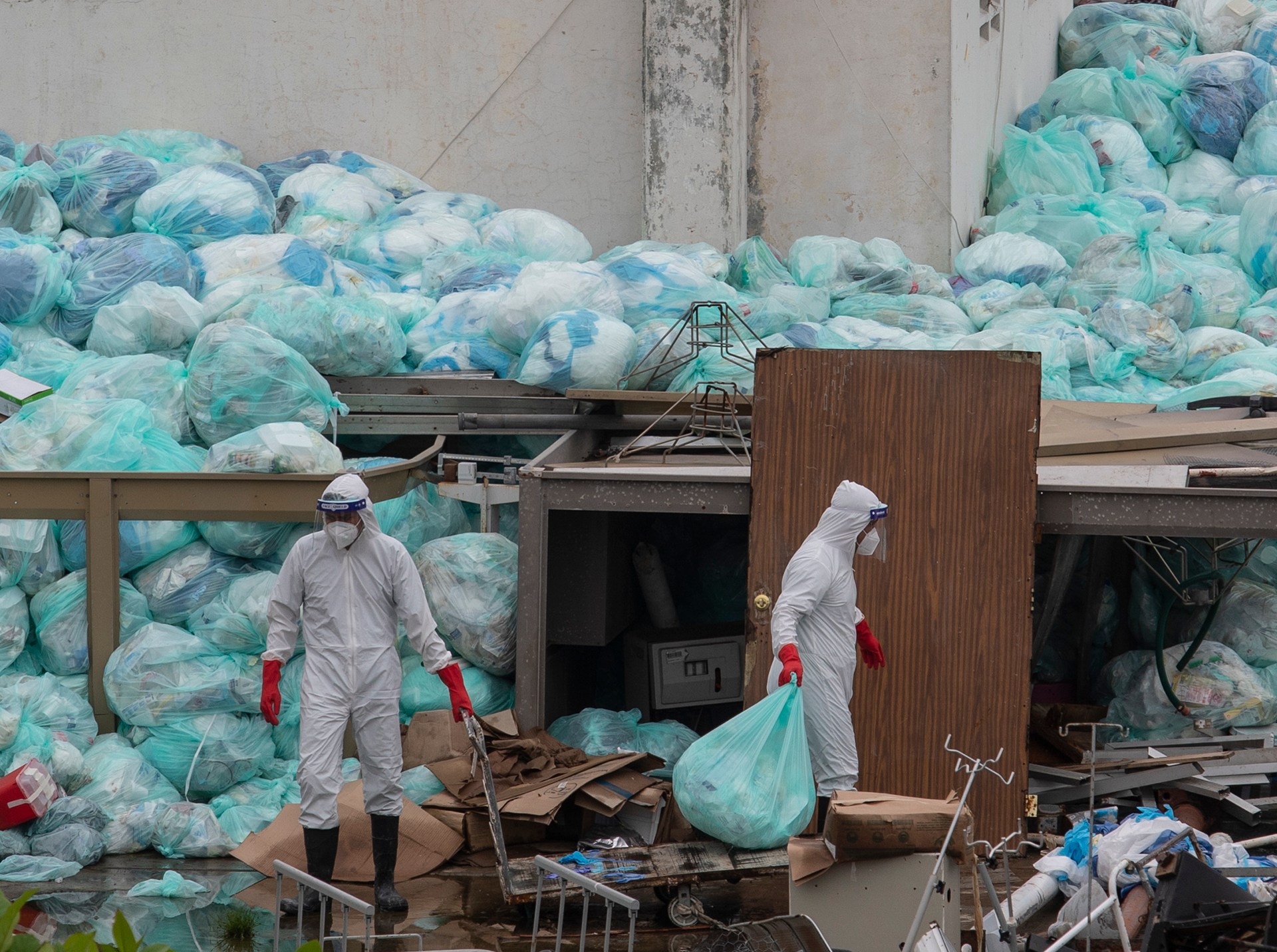Medical Care Health Heroes: The Unsung Duty of Medical Waste Removal Service
Medical Care Health Heroes: The Unsung Duty of Medical Waste Removal Service
Blog Article
Eco-Friendly Garbage Disposal Solutions for a Sustainable Future
In a world where environmental sustainability is critical, the management of waste has become a critical problem requiring interest and innovation. Green waste disposal options are not plain choices however imperatives for a sustainable future. By adopting methods that lessen environmental effect and promote source effectiveness, neighborhoods and sectors can contribute dramatically to a healthier world. From waste partition at the source to energy recuperation from waste, a huge selection of strategies exist to attend to the obstacles of garbage disposal sensibly. The inquiry continues to be: which options hold the most promise for achieving a genuinely sustainable waste management system?

Waste Segregation at Source
When executing waste partition at source, individuals can substantially contribute to much more effective recycling and waste monitoring systems. By dividing different types of waste such as paper, plastic, glass, and natural materials right from the point of disposal, the procedure of reusing becomes structured, minimizing contamination and raising the worth of recyclable materials. This technique not only conserves sources but also reduces the amount of waste predestined for landfills or incineration.
Correct waste partition at the source is necessary for advertising a circular economy where materials are recycled, recycled, or composted rather than being disposed of as trash. It additionally aids in the effective collection and processing of recyclables by waste management facilities - medical waste removal near me. Areas that adopt waste segregation at the resource commonly experience cost savings in waste monitoring and see a decrease in environmental contamination
People play a crucial duty in the success of waste segregation efforts by being mindful of exactly how they deal with their waste - click here. Education and learning and recognition campaigns can further motivate the adoption of these practices, resulting in a more sustainable and environment-friendly approach to squander disposal
Composting and Organic Waste Administration
An efficient approach for handling natural waste and promoting sustainability is through composting. Composting is an all-natural process that decomposes natural materials like food scraps, lawn waste, and paper into nutrient-rich soil amendments. This procedure not only draws away natural waste from garbage dumps yet likewise produces an important item that can enrich soil, improve plant growth, and decrease the demand for chemical fertilizers.

Applying composting programs at the family, community, and community levels can substantially reduce the quantity of natural waste that ends up in land fills. Educational campaigns on composting ideal techniques and the advantages of organic waste diversion can even more motivate widespread adoption of this green waste administration service. click here. Ultimately, composting presents a lasting and functional approach to taking care of natural waste while adding to a greener and even more lasting future
Recycling and Upcycling Efforts
One trick facet of promoting environment-friendly waste administration practices is via the execution of recycling and upcycling initiatives. Furthermore, reusing aids in the preservation of raw materials and reduces the demand for conventional waste disposal methods like landfilling and incineration.
Upcycling, on the other hand, is the imaginative reuse of disposed of products or items to develop products of greater quality or worth than the initial. By upcycling, much less waste is sent to garbage dumps, and the demand for new raw products reduces. This lasting technique advertises development and urges people to view waste as an important resource.
Both reusing and upcycling efforts play a critical role in promoting a round economy and lowering the environmental impact of waste disposal. click here. By including these methods right into daily life, individuals can add to a more sustainable future for generations to find
Power Healing From Waste

There are numerous modern technologies used for power recovery from waste, including incineration, gasification, and anaerobic digestion. Incineration entails melting waste at high temperatures to create steam, which after that drives turbines to create electrical power. Gasification converts natural products into synthetic gas, which can be utilized for electrical energy generation or as a fuel resource. Anaerobic food digestion breaks down natural waste to create biogas, which can be used for warm or electrical power production.

Community-Based Waste Decrease Programs
Using neighborhood involvement and involvement is crucial in applying efficient waste decrease programs that complement energy recovery efforts in lasting waste administration methods. Community-based waste decrease programs involve collaborative initiatives between locals, neighborhood companies, and authorities to lessen waste generation and improve recycling prices. These programs usually include educational projects to increase recognition concerning liable garbage disposal practices, the importance of recycling, and the advantages of minimizing waste.
One usual method is the establishment of neighborhood recycling centers where residents can go down off recyclable products easily. These centers promote reusing by making it conveniently accessible and giving sources for proper waste sorting. Furthermore, area clean-up occasions and area recycling drives assist infuse a feeling of ecological duty and unity amongst citizens.
Additionally, community-based waste reduction programs can consist of campaigns such as composting workshops, multiple-use product exchanges, and the promotion of sustainable techniques in neighborhood services - medical waste disposal. By involving the area in waste decrease efforts, these programs produce a sense of possession and cumulative obligation towards constructing an extra lasting future
Final Thought
Finally, executing environment-friendly garbage disposal options such as waste partition, composting, reusing, energy recuperation, and community-based programs is important for a lasting future. By taking on these techniques, we can reduce the ecological influence of waste generation and promote a round economy. It is necessary that governments, organizations, and individuals work together to prioritize sustainable waste administration methods to safeguard our world for future generations.
From waste partition at the resource to energy recuperation from waste, a plethora of strategies exist to attend to the obstacles of waste disposal responsibly. Educational initiatives on composting best practices and the benefits of organic waste diversion can even more motivate prevalent adoption of this green waste monitoring solution.Efficiently harnessing power from waste products is a crucial approach in sustainable waste monitoring techniques.Utilizing neighborhood involvement and involvement is crucial in implementing efficient waste reduction programs that match power healing initiatives in lasting waste management practices.In conclusion, executing green waste disposal services such as waste segregation, composting, reusing, power healing, and community-based programs is essential for a sustainable future.
Report this page